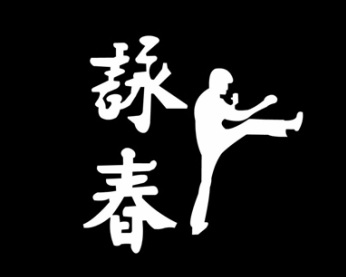

I often think about my relationship with my Sifu, and his relationship with his own Sifu, and how that has influenced me as a practitioner and teacher of Chinese Martial Arts, my relationships with my students, and how I conduct myself in the community.

In a world where people care less and less for each other, yet want more and more, having a relationship like this is not only rare but something that should be valued once you have it. And the fact that the Sifu is so much more than your teacher of a physical skill. For me it is the traditional art of Kung Fu and the hierarchy of respect and the morality and etiquette that inspires me more than the sports oriented versions of martial arts. Some are led by a Sifu/Sensei, others by coaches and businessmen. Some are traditional arts that require a lifetime of commitment, others are sports oriented that give the student limited time to reach a peak before they are unable to maintain the training and competition regimes. They come from different countries and cultures, with the result being countless styles and varying degrees of quality.

Need the best fighting games in your life? Punch that link as hard as you can.In Blog, FitLife Martial Arts News, FitLife Therapies News "As a director or actor, I enjoyed this process very much, and we can experience many different lives." There are no completely good people and completely bad people in the game in the traditional sense, it's just that they all have different values and concepts," Zhengxiang explains. "I believe players will also understand what this game is trying to tell everyone: the villains in the story, each have their own difficulties and frustrations. All you see is hate." Zhengxiang says that through that line, players can see the temperament and image of Yang. In the case of Sifu's main villain, Yang, voiced by Huang Jinze, Zhengxiang recites a memorable sentence from the character, along the lines of, "After I killed your father, I saved a lot of people, but you don't care. "After all, during the actor's performance, if his or her temperament is close to the character, things will be easier," he says. The actor's individual temperament was also taken into consideration. When it came to choosing who would voice which character, Zhengxiang says he considered factors such as the actor's timbre and tone, as well as age and gender.

Lui Beichen and Mi Xiao voiced the respective male and female versions of Sifu's protagonist. "So when a fight scene came up, the actors would be able to use some body language to better show the emotion in the sound." "Therefore, I required the actors to be on their feet in the studio the whole time, and managed to provide enough space for them," he continues. Zhengxiang wanted to replicate the feeling of physical exertion of the game's characters. Since Sifu is an action game, the fights, dialogues, and cutscenes are interspersed with each other. "The previous voiceovers such as English and Japanese have already set the first impression among Chinese players, and first impressions are most lasting, so naturally, they will expect more from our Chinese version VO," he explains. Most games nowadays have English and/or Japanese voice acting, depending on the studio and genre. One challenge that Zhengxiang faced was trying to make the Mandarin voiceovers authentic to native Chinese players, as they have the highest expectations. One of the bosses, Kuroki, had lines that contained buzzwords and modern slang to match her setting which was a contemporary museum. Zhengxiang adds that he and his team would make simple adjustments to the Mandarin script according to the original English text, including some expressions and sentence structures, but only to make the expressions more natural.įor example, the voice lines in Sifu were in more traditional Mandarin in order to reflect the ancient and classical roots of the culture, while there were a few exceptions. "As the game is heavily influenced by Chinese and Kung Fu culture, we also wanted players in China to be able to experience it in their own language," says Garczynski. As such, Sloclap felt that for a lot of players, including themselves, having Mandarin voiceovers would help with immersion. Sifu is filled with references to classical martial arts movies and culture, and takes place in a fictional contemporary Chinese city. "When a fight scene came up, the actors would be able to use some body language to better show the emotion in the sound".


 0 kommentar(er)
0 kommentar(er)
